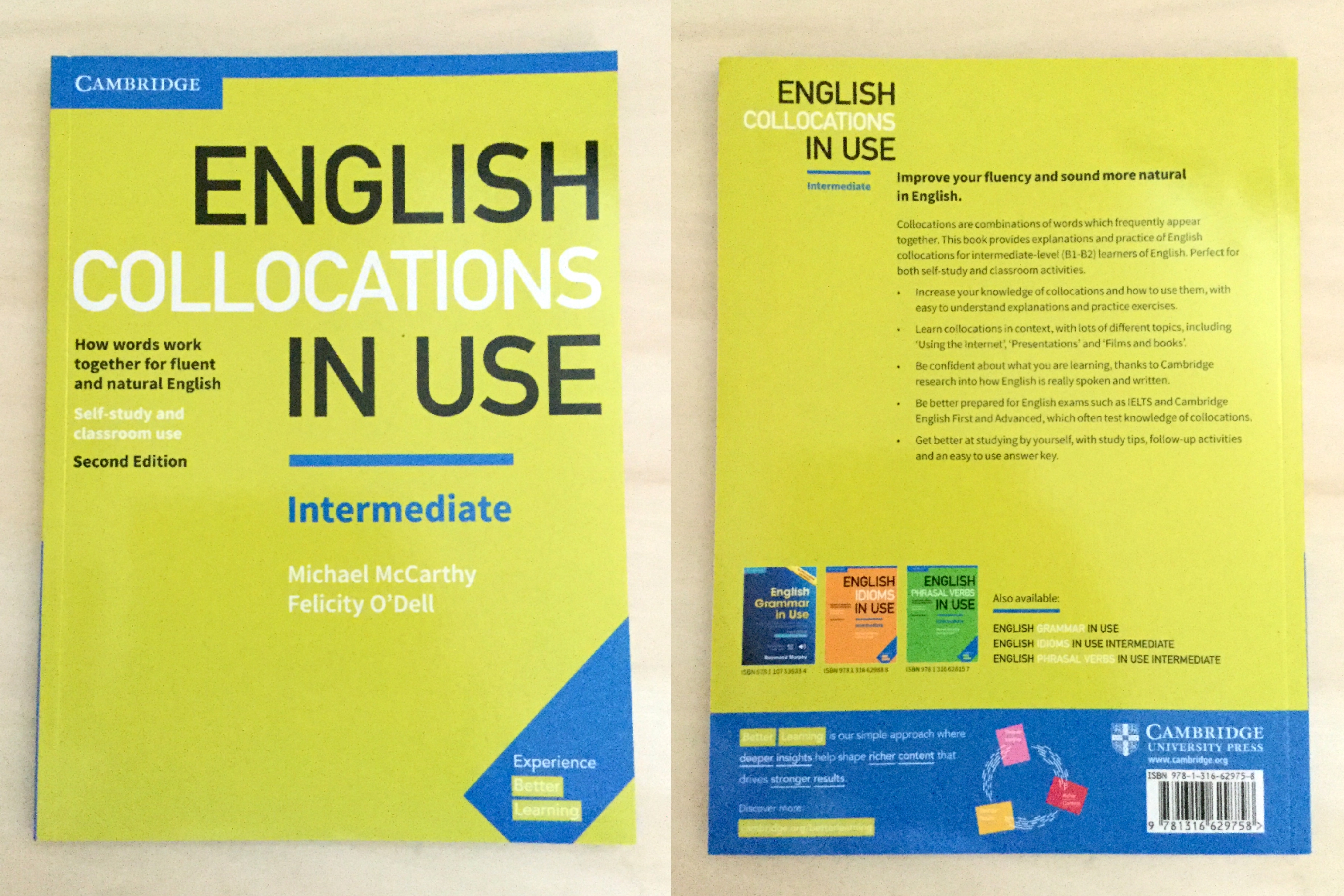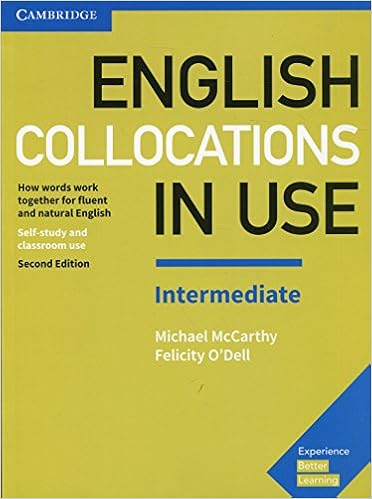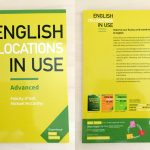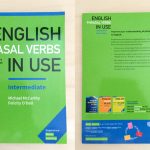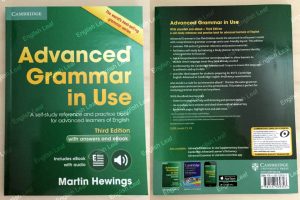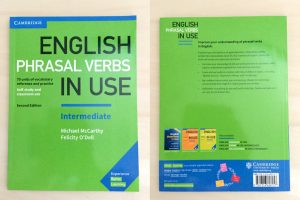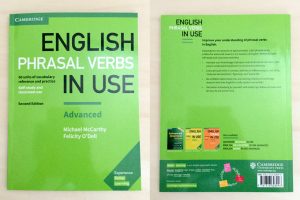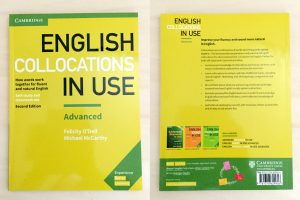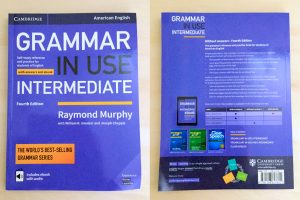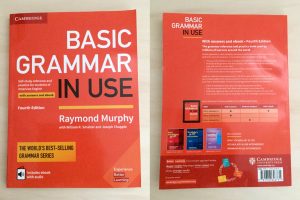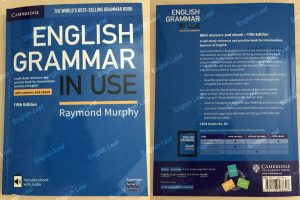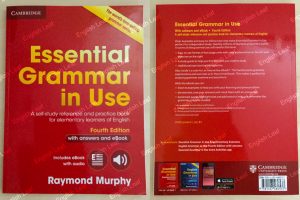【文法書のバイブル! English Grammar in Useシリーズの種類と選び方】も確認する
English Grammar in Useからのコロケーション中級
collocationとは、単語と単語のよく使われる組み合わせやつながりのことで、日本語では連結関係と訳されます。例えば、英語では強い風をstrong windと言うのが自然で、heavy windとはあまり言いません。本書では、このようなcollocationを使いこなせるように解説しています。中級と上級にレベルが分けられていて、本書は中級です。
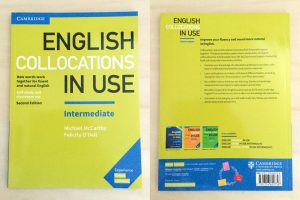
Contents
Acknowledgements
Using this book
Learning about collocations
1What is a collocation?
2Finding, recording and learning collocations
3Using your dictionary
4Types of collocation
5Register
Grammatical aspects of collocations
6 Intensifying adverbs highly unlikely, utterly ridiculous, strongly object
7Everyday verbs 1 make a mistake, do your best, do damage
8 Everyday verbs 2 go bald, become extinct, fall ill
9 Everyday verbs 3 have fun, take action, pay a compliment
Special aspects of collocation
10 Synonyms and confusable words 1 close a meeting, antique furniture, only child
11 Synonyms and confusable words 2 gain power, achieve your goals, defeat an opponent
12 Metaphor sunny smile, ideas flow, heated discussion
Topics: Travel and the environment
13 Weather strong wind, blanket of fog, river bursts its banks
14 Travel tiring journey, aisle seat, family-run hotel
15 Countryside surrounding countryside, well worth seeing
16 Towns and cities lined with shops, sprawling city, volume of traffic
Topics: People and relationships
17 People: character and behaviour have a vivid imagination, lose your patience
18 People: physical appearance slender waist, immaculately groomed
19 Families distant cousin, expecting a baby, stable home
20 Relationships casual acquaintance, love at first sight
Topics: Leisure and lifestyle
21 Houses, flats and rooms move into a flat, spacious living room
22 Eating and drinking nourishing meal, spoil your appetite, dying of hunger
23 Films and books film critic, go on the stage
24 Music give a performance, go on tour, strum a guitar
25 Sport go snowboarding, take a penalty
26 Health and illness catch a cold, vigorous exercise, be taken
Topics: Work and study
27 Using the Internet refine your search, open an attachment
28 Study and learning do research, attend a lecture, first draft
29Presentations target audience, prepare handouts, public speaking
30 Work high-powered job, hand in your notice
31Business set up a business, launch a product, rival company
32 Academic writing 1 key factor, challenge a theory, carry out research
33 Academic writing 2 make reference to, argue convincingly, research suggests
Topics: Society and institutions
34 Laws and punishments break the law, bend the rules, fair trial
35 Crime hardened criminal, juvenile crime, tackle crime
36 News hit the headlines, hold talks, take hostage
37 Money squander money, price soars, go cheap
38 War and peace war breaks out, restore order, call a truce
39 Global problem Basic concepts eradicate poverty, forced and voluntary migration
40 Time save time, ungodly hours, from dawn till dusk
41 Sound break the silence, excessive noise, almighty bang
42 Distance and size within commuting distance, painfully thin
43 Colour and light bright colour, beam of light, shed some light on
44 Texture choppy sea, soft pillow, ice melts
45 Taste and smell fragrant perfume, have a taste, smell danger
46 Number and frequency significant number, come to a total of, rare species
47 Movement and speed prompt payment, painfully slow, lose your balance
48 Change make an adjustment, break a habit, change the subject
49 Ways of speaking brief chat, raise a subject, drop a hint
50 Ways of walking Functions pace up and down, wander aimlessly, faltering steps
51 Starting and finishing promising start, bring something to an end
52 Talking about success and failure make a breakthrough, fail miserably
53 Talking about cause and effect cause alarm, adverse effects, have a major impact
54 Remembering and sensing vaguely remember, blot out a memory, have a feeling
55 Agreeing and disagreeing settle a dispute, agree to differ, heated argument
56 Talking about beliefs and opinions firmly believe, colour someone’s judgement
57 Deciding and choosing arrive at a decision, have second thoughts, tough choice
58 Claiming and denying make the point that, contradictory evidence
59 Liking and disliking have a liking, state a preference, take offence
60 Praising and criticising offer your congratulations, speak highly of
Key Index
Acknowledgements
Joy Goodwin wrote two new units for the Second Edition: Unit 27, Using the Internet, and Unit 29, Presentations. The publishers would like to thank Joy for her contribution to this edition.
The authors and publishers acknowledge the following sources of copyright material and are grateful for the permissions granted. While every effort has been made, it has not always been possible to identify the sources of all the material used, or to trace all copyright holders. If any omissions are brought to our notice, we will be happy to include the appropriate acknowledgements on reprinting & in the next update to the digital edition, as applicable. Key: T = Top, B = Below, TR = Top Right, CR = Centre Right, CL = Centre Left, BL = Below Left.
Using this book
What is a collocation?
Collocation means a natural combination of words; it refers to the way English words arech associated with each other. For example, do and homework go together, as do make and mistet goes with man/woman and high with mountain.
Why learn collocations?
You need to learn collocations because they will help you to speak and write English in a mo and accurate way. People will probably understand what you mean if you talk about ‘making your homework’ or say ‘My uncle is a very high man’ but your language will sound unnatural and might perhaps confuse. Did you mean that your uncle is two metres tall or did you mean that he has a hich position in government or business?
Learning collocations will also help you to increase your range of English vocabulary. For example you’ll find it easier to avoid words like very or nice or beautiful or get by choosing a word that fits the context better and has a more precise meaning. This is particularly useful if you are taking a written exam in English and want to make a good impression on the examiners.
How were the collocations in the book selected?
The collocations presented in this book were mainly selected from those identified as significant by the Cambridge International Corpus of written and spoken English (now known as the Cambridge English Corpus) and also the CANCODE corpus of spoken English, developed at the University of Nottingham in association with Cambridge University Press.
The Cambridge English Corpus is a vast database of real English taken from a range of sources, such as books, newspapers, advertising, letters and emails, websites, conversations and speeches, radio and television. By studying this corpus we obtained a representative picture of how English is really used and which words naturally and frequently go together. We also made much use of the Cambridge Learner Corpus, a corpus of learner English made up of exam scripts from students taking Cambridge English examinations all over the world. This particular corpus showed us what kind of collocation errors learners tend to make.
These corpora show that there are many thousands of collocations in English. So how could we select which ones would be most useful for you to work on in this book?
Firstly, of course, we wanted to choose ones that you might want to use in your own written and spoken English. So, in the unit on Eating and drinking we include, for example, have a quick snack and processed food but not cocoa butter, which is a very strong collocation, but one which has very limited use for most people.
Secondly, we decided it would be most useful for you if we focused on those collocations which are not immediately obvious and which the Cambridge Learner Corpus shows can cause problems to students. A friendly girl, cold water or to eat an apple are all collocations, but they are combinatio which you can easily understand and produce yourself without any problems.
So we deal ne less obvious – though equally useful – word combinations, with, for instance, make friends (not get friends) and heavy rain (not strong rein). Idioms are a special type of collocation where a fixed group of words has a meaning that cannot guessed by knowing the meaning of the individual words. We deal with them separately in Englis Idioms in Use and so do not focus on them here.
How is the book organised?
The book has 60 two-page units. The left-hand page presents the collocations that are focused on in the unit. You will usually find examples of collocations in typical contexts with, where appropriate, any special notes about their meaning and their usage. The right-hand page checks that you have understood the information on the left-hand page by giving you a series of exercises that practise the material just presented. The units are organised into different sections.
First we start with important information about collocations in general. Then there are sections looking at grammatical and other special aspects of collocations. The rest of the book deals with collocations that relate to particular topics such as Weather or Business, concepts such as Time or Change and functions such as Agreeing and disagreeing or Liking and disliking. The book has a key to all the exercises and an index which lists all the collocations we deal with and indicates the units where they can be found.
How should I use this book?
We recommend that you work through the five introductory units first so that you become familiar with the nature of collocations and with how best to study them. After that, you may work on the units in any order that suits you.
What else do I need in order to work with this book?
You need a notebook or file in which you can write down the collocations that you study in this book as well as any others that you come across elsewhere. You also need to have access to a good dictionary. We strongly recommend the Cambridge Learner’s Dictionary or the Cambridge Advanced Learner’s Dictionary, as both of these give exactly the kind of information that you need to have about collocations.
They do this both through the examples provided for each word entry and through their special collocations boxes or mini-panels. For more information about Cambridge dictionaries and to do online searches you could go to http://dictionary.cambridge.org. Your teacher, however, may also be able to recommend other dictionaries that you will find useful. So, a study of collocation is highly recommended (Unit 6) if you want to make a good impression (Unit 2) with your natural and accurate use of English. Above all, we hope that you will not only learn a lot but will also have fun (Unit 9) as you do the exercises (Unit 7) in this book.

